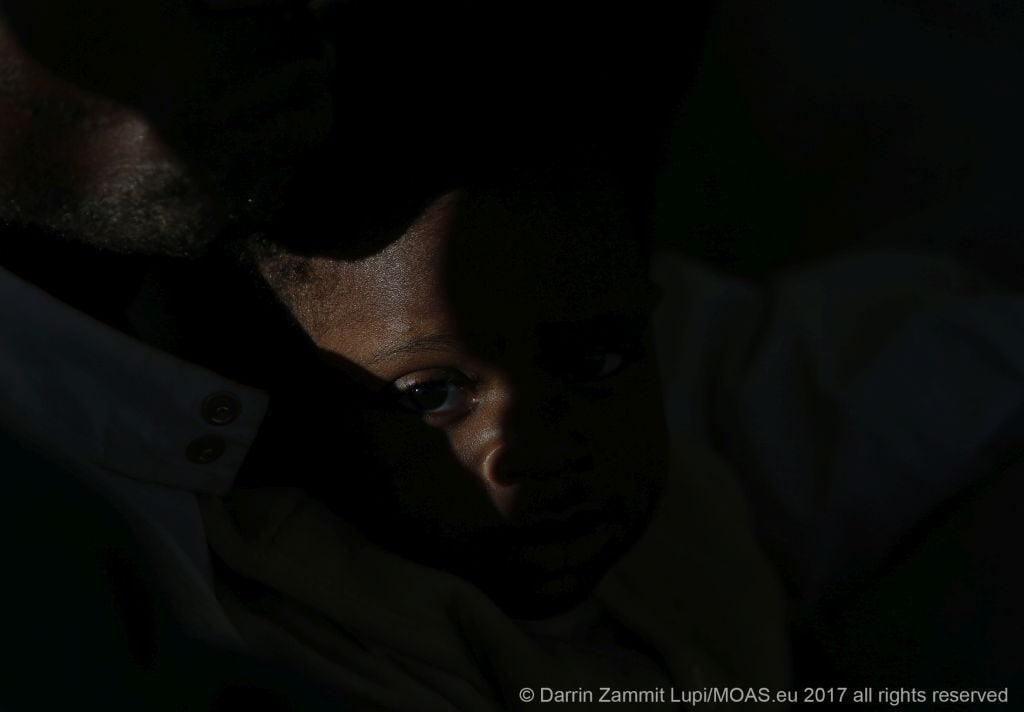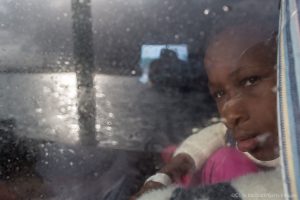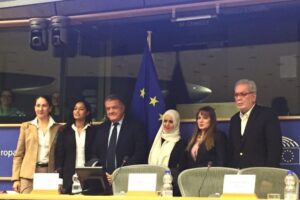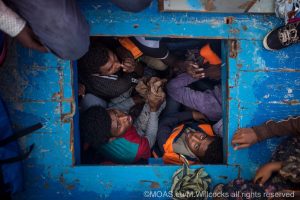Da mesi si susseguono articoli e programmi tv sul tema delle ONG attive in mare per salvare migranti che sembrano essere diventate losche organizzazioni che operano per fini occulti e con fondi dalla dubbia provenienza. Quelle stesse ONG che cercano di contenere il numero, ancora drammaticamente alto di decessi in mare, sarebbero inoltre il pull-factor per le migrazioni stesse.
In breve, sarebbero proprio le ONG a fare da incentivo per le partenze dalle coste libiche con operazioni finanziate con fondi poco trasparenti.
Queste le accuse, le illazioni, le insinuazioni che pesano moltissimo sulle spalle di chi giornalmente dedica il proprio tempo a una missione fondamentale come quella di salvare vite umane.
Mentre si scatenava il polverone mediatico, nel weekend di Pasqua il nostro equipaggio lavorava ininterrottamente per oltre 24 ore al fine di assistere e mettere in sicurezza quante più persone possibile.
Chi insinuava dubbi e ordiva intrighi per aumentare le ombre sul fenomeno migratorio, di contro, era comodamente seduto sul divano di casa sua.
Sin dal 2014 come prima ONG attiva in mare, MOAS ha sempre cooperato con le autorità ufficiali per svolgere ogni singola attività di soccorso -dalla condivisione delle informazioni ottenute tramite l’uso delle nostre apparecchiature, alla diffusione dei dati relativi alle persone salvate fino allo sbarco nel porto indicato- con l’unico e primario obiettivo di evitare che le persone muoiano in mare.
La mia famiglia ha aperto la strada alla partecipazione attiva della società civile che così smetteva di essere silenzioso spettatore delle tragedie in mare. Gli occhi dei giornalisti, delle organizzazioni umanitarie e dei cittadini erano puntati sulle banchine dei porti dove i migranti salvati dalla Guardia Costiera Italiana e da Mare Nostrum -unici attori impegnati in mare in quel momento- arrivavano col loro carico di disperazione.
Abbiamo agito spinti dalla necessità di dare il nostro contributo a salvare vite umane seguendo una idea che ha toccato prima il nostro cuore, poi la nostra mente e infine il portafoglio. Abbiamo risposto concretamente all’appello di Papa Francesco affinché non ci si assuefacesse alle morti in mare. Abbiamo investito il nostro denaro, il nostro tempo e le nostre competenze a servizio di chi rischiava di morire durante la traversata del Mediterraneo.
MOAS dalla sua prima missione ha immediatamente avuto un impatto decisivo in termini di vite umane salvate e ha ispirato altre organizzazioni a mettersi in mare per prestare soccorso alle imbarcazioni in difficoltà.
Eppure ora la solidarietà e il soccorso in mare sono sotto accusa e la fiducia nei nostri confronti è stata, se non compromessa, duramente messa alla prova dalla macchina del fango dei mass media italiani e non.
Le ONG sono state chiamate a presentarsi per le audizioni presso la Camera e il Senato, Commissioni Schengen e Difesa, così come rappresentanti della Guardia Costiera, della Marina Militare Italiana e di alcune procure coinvolte. Le indagini conoscitive proseguono e le dichiarazioni si moltiplicano.

Ma i migranti dove sono?
Chi ha parlato con loro? Cosa sappiamo di queste persone? Sono partite perché spinte dal pull-factor della nostra presenza in mare?
O forse non avevano nemmeno una vaga idea di quello che avrebbero subito durante il viaggio via terra e via mare.
Perché la voce dei migranti non conta?
Perché nessuna commissione ha chiesto la loro versione dei fatti? Proprio loro che conoscono e portano sul corpo i segni di ogni tappa di quel viaggio terribile.
Perché, ancora una volta, parliamo di loro ma non li ascoltiamo mai?
I migranti rappresentano la parte più fragile della nostra società: privi di mezzi, in fuga da violenze che si stenta a immaginare, da conflitti che non hanno scelto o carestie cui non possono porre rimedio. Sono persone vulnerabili, spesso sopravvissute a torture o gravi traumi, in cerca di un futuro lontano da bombe, armi e morte.
Ma sono pur sempre persone.
E in quanto tali hanno diritti che troppo spesso vengono calpestati e dimenticati.
Mi chiedo se qualcuna delle persone che ci accusa senza alcuna prova concreta in mano abbia mai parlato con un migrante appena arrivato da un viaggio della speranza. Mi chiedo se abbia mai guardato negli occhi una madre che fugge per risparmiare ai propri figli la guerra. Mi chiedo perché a nessuno sembri interessare la loro voce: la voce degli invisibili.
Proprio a questi invisibili, MOAS ha dedicato e continua a dedicare il suo impegno quotidiano in mare e non solo.
Ogni operazione di salvataggio è stata per noi occasione di riscoprire la nostra stessa umanità, sanando ferite, ascoltando racconti, ricostruendo storie e consolando chi aveva perso tutto tranne la speranza.
Proprio quelle storie e la sensazione di non potersi arrendere ci motivano continuamente: finché qualcuno sarà costretto, in mancanza di alternative legali e sicure su cui lavoriamo già da tempo, a rischiare la vita in mare, noi saremo lì per salvarlo.
E per raccontare e preservare la sua voce, la sua storia insieme alla nostra stessa umanità.
[donate_button_blog]



